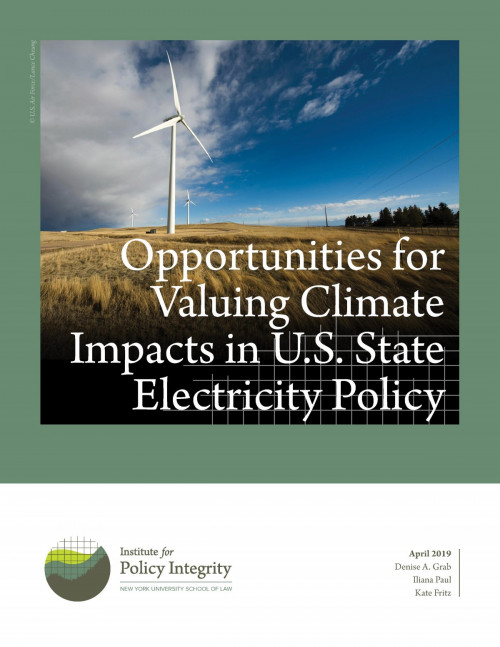With an absence of federal leadership on climate change, many states have worked to reduce greenhouse gas emissions on their own, often by incorporating a broader range of considerations into electricity policy. Our report assesses the potential to expand the valuation of climate damages in state electricity policy using Social Cost of Carbon metrics. We examine existing statutes and regulations in all 50 states to identify opportunities for valuing climate impacts around the country.
State electricity regulators have a significant opportunity to use economic approaches like valuing climate impacts to better inform their decisionmaking. This approach can be used to account for the impacts associated with different types of proposed generation resources. Regulators in 10 states have already begun the process of using monetary estimates of climate damages in their electricity proceedings. In these jurisdictions, climate damages are taken into account in three main ways: utility resource planning, compensation for low or zero-emissions resources, and cost-benefit analysis frameworks.

